I have a function to join two structs to create a linked list.
Here, is the code:
struct point{
int x;
int y;
struct point *next;
};
void printPoints(struct point *);
void printPoint(struct point *);
struct point * append(struct point *, struct point *);
void main(){
struct point pt1={1,-1,NULL};
struct point pt2={2,-2,NULL};
struct point pt3={3,-3,NULL};
struct point *start, *end;
start=end=&pt1;
end=append(end,&pt2);
end=append(end,&pt3);
printPoints(start);
}
void printPoint(struct point *ptr){
printf("(%d, %d)\n", ptr->x, ptr->y);
}
struct point * append(struct point *end, struct point *newpt){
end->next=newpt;
return newpt;
}
void printPoints(struct point *start){
while(start!=NULL){
printPoint(start);
start=start->next;
}
}
Here, the append function's task involves changing the end pointer.
Both the arguments of append function are pointers; in 1st case, 1st argument is &pt1 and 2nd argument is &pt2.
The function makes a copy of the end pointer which has the type struct point.
Since &pt1 is passed then this duplicate end pointer has x component as 1 and y component as -1 and next component as NULL.
Now we change this copy's next component to newpt pointer and return the newpt pointer.
Back to the main function, the original end pointer now has the value of &pt2.
end->next = newpt; shouldn't produce any change in the original end pointer in main because only the local pointer was changed.
So then why do I get a linked list.
What I get:
(1, -1)
(2, -2)
(3, -3)
What I think I should get:
(1, -1)
